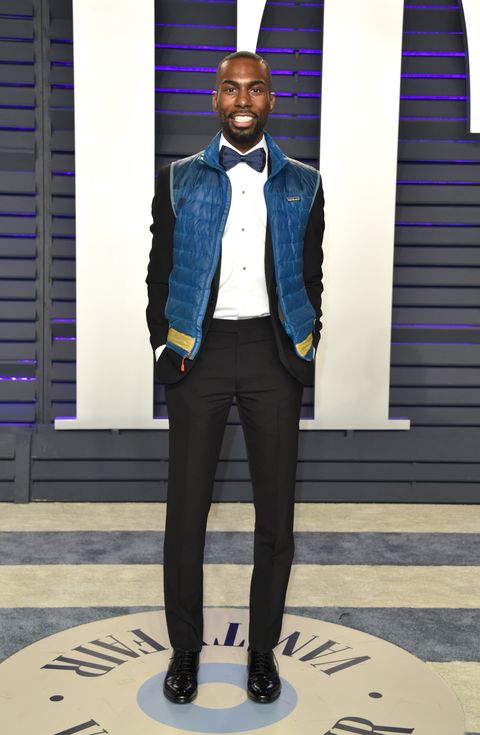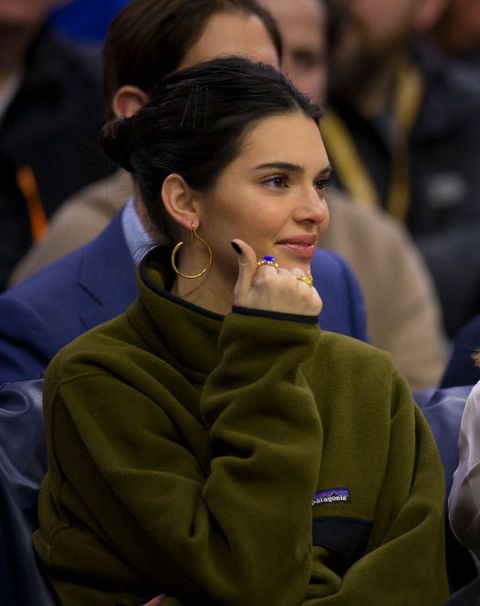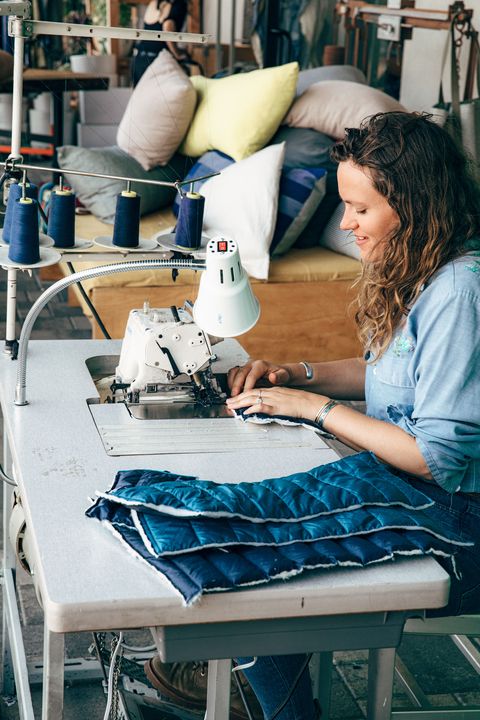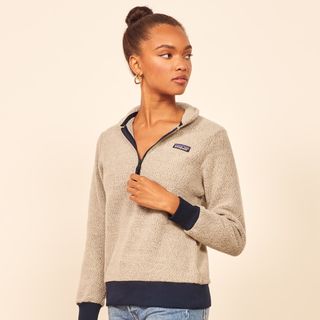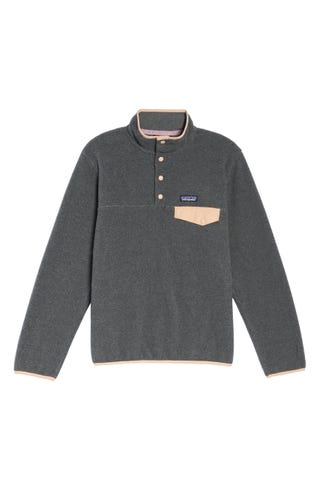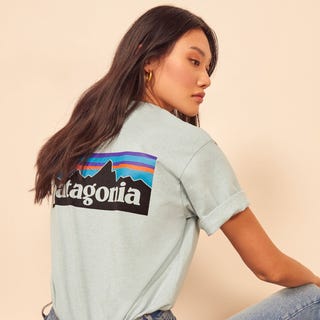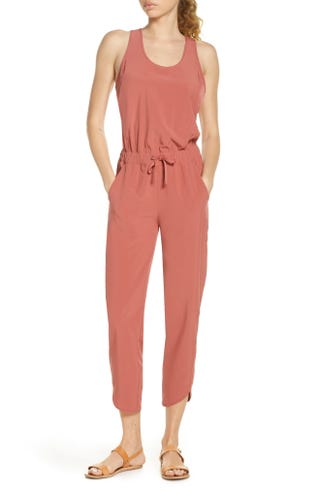It all started because DeRay Mckesson was cold. In 2014, when the school administrator–turned–activist set out to drive from his home in Minneapolis to Ferguson, Missouri, to protest the police shooting of Michael Brown, he threw on a blue vest he’d bought five years earlier on a trip to New York City. Soon, images of Mckesson in the vest were blasted around the world, cementing him—and his outerwear of choice—as the most recognizable member of the Black Lives Matter movement. These days, he never goes anywhere—whether it’s a rally, his friend Prabal Gurung’s show at New York Fashion Week, even The Late Show With Stephen Colbert—without his signature item. “I continue to wear it because it reminds me that everything we went through in the street was real,” he explains. And while designers like Brunello Cucinelli and Moncler are known for their status versions of the style, Mckesson’s is a humble Patagonia (a similar vest on its website retails for around $1oo).
The confluence of the outdoor brand and one of the most prominent activists of our time is no accident. Corporations are not people, but if they were, Patagonia might be Bernie Sanders: authentic and committed from the start, but only more recently lauded by the wider world for it. Mckesson says he was drawn to the brand because it “has always lived its commitment to the environment.” Now equally beloved by those scaling icy peaks and those scaling the social ladder of Fashion Week (thus the “Patagucci” coinage), Patagonia has been walking the walk since the ’70s. The rest of the fashion world is only now nipping at its Tevas.
Forged in the same California crucible of optimism and alfalfa-powered weirdness that created the Whole Earth Catalog and Moon Juice, Patagonia was founded by rock climber Yvon Chouinard in 1973. Chouinard and his merry band of outdoorspeople allied themselves with environmental activism early on: For example, when some Patagonia employees met a young man who was working to save a nearby riverside from development, they gave him office space to run his campaign. In 1985, Patagonia formalized its commitment to advocacy with 1% for the Planet, a program that has donated more than $110 million from the company’s sales to environmental grassroots groups. The company’s Ventura headquarters is the kind of place where you can go surfing on your lunch hour. It’s also the kind of place where you might get some side-eye if you show up to a meeting carrying a single-use coffee cup, says Lisa Williams, the brand’s chief product officer.
There’s a healthy debate about whether Michael Jordan ever said the words “Republicans buy sneakers, too,” but that justification of political apathy in the name of commerce has long been common for fashion brands, luxury and mass alike. Why wade into a debate when you’re looking to clothe people on both sides of the aisle? But with a global climate crisis looming, more and more fashion brands have been speaking out. M. Sanjayan, the CEO of Conservation International, points to the companies, including Tiffany & Co., Levi Strauss & Co., and Gap Inc., who took out full-page newspaper ads protesting Trump’s decision to pull out of the Paris climate accords in 2017.
Around the same time, Patagonia fired its own shot across the bow: joining a lawsuit against the Trump administration to block cuts to two Utah national monuments. Most fashion activism stops short of the courtroom, but Patagonia is leaning into this news cycle. (“Hey, How’s That Lawsuit Against the President Going?” read a company blog post last spring.) “Every time the rest of the industry starts catching up, they reinvent [themselves],” Sanjayan says. They are, Williams says, “trying to build an army of conscious consumers,” many of whom are millennials or Gen Zers, who’ve been raised to question many of the fashion industry’s norms. “We are really happy that younger generations are asking hard questions of us, questions that we do not always have every answer to. They’re helping us raise the bar.”
The company has pledged to eliminate virgin petroleum sources by 2025, and it launched ReCrafted, an upcycled line made from Patagonia pieces that were beyond repair, this past year. It’s also been doing a sideline in environmental documentaries: This year, Patagonia will premiere a feature on public lands called Public Trust. Activism doesn’t appear to have turned off its customers. If anything, it “has increased their market share,” Sanjayan says. “They’ve taken a position that has ended up being good, not just for the planet, but for their bottom line.”
Between its message and its place in the “gorpcore” aesthetic (Sandy Liang’s clout fleeces, Prada’s hiking sandals), Patagonia has even gained an unexpected fashion following, and it’s gotten requests to do collaborations with fashion brands, according to Williams. Stylist Rachael Wang, who is known for her street style, initially admired the performance aspect of the clothing. “My appreciation evolved into reverence,” she says, “once I learned about the company’s holistic approach to environmental responsibility and social justice. They are certainly not perfect, but they don’t claim to be. They don’t use imperfection as an excuse to stagnate.”
This article originally appeared in the April 2020 issue of ELLE.
